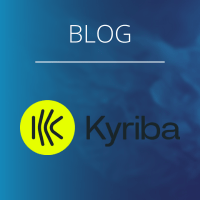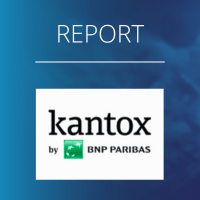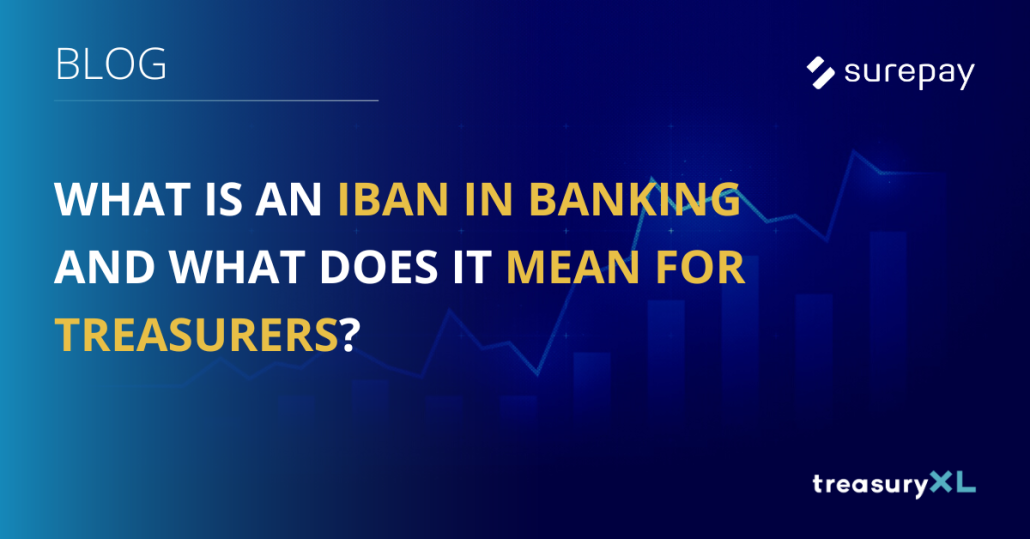What is an IBAN in Banking and what does it mean for Treasurers?
By treasuryXL
This blog to discuss the importance of IBAN-Name Check for treasurers and how it can help to reduce fraud, improve customer satisfaction, and save money.
As a treasurer, you can easily create a win-win situation for auditors and help them examine transactions faster with IBAN-Name Check. Apart from assisting auditors, this solution reduces the number of unintentional or misdirected payments, lowers operational expenses, and has a positive impact on customer satisfaction.
What is IBAN in banking?
The term IBAN refers to the International Bank Account Number. IBANs are created by supplementing ordinary Dutch bank account numbers with 18 digits and letters.
What does IBAN consist of? An IBAN for a Dutch bank account includes a few elements:
- The country code (in this case, NL)
- A 2-digit control number
- The (abbreviated) name of the payment service provider
- The ten-digit domestic account number.
Here’s an example: The Dutch IBAN for “Bank” account number 123456789 is, for example, NL89 BANK 0123 4567 89.
Who uses IBAN and what role does it play in banking?
In the EU, the euro has the Single Euro Payments Area (SEPA). Regulations stipulate that current accounts must be available in a consistent, straightforward manner throughout Europe to eliminate discrepancies between domestic and cross-border euro payments. That’s why all the euro accounts across the continent must use IBAN, including domestic payments.
However, IBAN poses a few challenges. One of them is ensuring that the receiver’s name entered as the account holder information corresponds to the name the bank has registered for the given IBAN. This is where the IBAN-Name Check solution comes in handy.
What is an IBAN-Name Check?
IBAN-Name Checks boost the security of payments by allowing organisations to easily verify if the name submitted as the beneficiary of an immediate payment matches the name of the account holder to whom the money is being made. It makes use of a sophisticated algorithm to compare the payee name that the payer enters with the account holder information that the payee’s bank has registered using the corresponding IBAN.
IBAN-Name Checks alert the person making a payment to another account if the specified beneficiary’s name differs from the account holder’s name. This delivers a great customer experience and protects all parties against fraud and misdirected funds.
IBAN-Name Check is a key compliance requirement for the Instant Payments regulations developed by the European Commission, that will apply to all European banks.
IBAN-Name Check: Single payments vs. bulk payments?
Note that currently, only single payments undergo IBAN-Name Check in the Netherlands. Bulk payments are exempt from it.
Single payments are single transactions involving the transmission of funds from one account to another. Typically, single payments consist of payments for bills, online purchases, peer-to-peer transfers, or other minor, one-time transactions.
Bulk payments, on the other hand, include the transfer of funds in batches or groups, and are frequently used to complete many transactions at the same time. These types of payments are used in situations such as payroll processing, supplier payments, or any situation in which a large number of payments must be processed at the same time.
The importance of IBAN-Name Check for Treasury
As a treasurer, you can use the IBAN-Name Check to assist with fraud detection and error identification. The approach helps to reduce impersonation and APP fraud, lowers the number of unintentional or misdirected payments, increases consumer trust and satisfaction, and reduces operational expenses.
An IBAN-Name Check tool lets you check if the beneficiary’s name and IBAN are the same, but also examine the number of account holders associated with an IBAN and check the details of other account holders if necessary.
The solution also helps you to keep your CRM Data up to date and to quickly check payments such as verifying IBANs and names for a month. This opens the door to tracking down any internal or external fraudulent behaviour that may otherwise be costly to the organisation, while also gathering evidence to assist auditors.
Wrap up
IBAN-Name Check solutions have become increasingly popular in recent months as more banks and payment service providers strive to secure their operations and comply with Instant Payments laws.
Click and Scroll! Here are more articles that you might like…
 https://treasuryxl.com/wp-content/uploads/2024/01/Template_VACANCY-featured.png
200
200
treasuryXL
https://treasuryxl.com/wp-content/uploads/2018/07/treasuryXL-logo-300x56.png
treasuryXL2025-07-11 07:00:512025-07-11 08:42:17Vacancy Treasury Operations Analyst – South Holland
https://treasuryxl.com/wp-content/uploads/2024/01/Template_VACANCY-featured.png
200
200
treasuryXL
https://treasuryxl.com/wp-content/uploads/2018/07/treasuryXL-logo-300x56.png
treasuryXL2025-07-11 07:00:512025-07-11 08:42:17Vacancy Treasury Operations Analyst – South Holland https://treasuryxl.com/wp-content/uploads/2025/07/Featured_Automation-Boutique-1.png
200
200
treasuryXL
https://treasuryxl.com/wp-content/uploads/2018/07/treasuryXL-logo-300x56.png
treasuryXL2025-07-09 07:00:512025-07-08 14:53:53New: Real-time Rabobank account data in Excel & Power BI
https://treasuryxl.com/wp-content/uploads/2025/07/Featured_Automation-Boutique-1.png
200
200
treasuryXL
https://treasuryxl.com/wp-content/uploads/2018/07/treasuryXL-logo-300x56.png
treasuryXL2025-07-09 07:00:512025-07-08 14:53:53New: Real-time Rabobank account data in Excel & Power BI https://treasuryxl.com/wp-content/uploads/2025/07/Surecomp-BLOGS-featured-9.png
200
200
treasuryXL
https://treasuryxl.com/wp-content/uploads/2018/07/treasuryXL-logo-300x56.png
treasuryXL2025-07-08 07:00:102025-07-07 15:26:05In conversation with Surecomp’s Head of Solution Consulting, Arjo Haksteen
https://treasuryxl.com/wp-content/uploads/2025/07/Surecomp-BLOGS-featured-9.png
200
200
treasuryXL
https://treasuryxl.com/wp-content/uploads/2018/07/treasuryXL-logo-300x56.png
treasuryXL2025-07-08 07:00:102025-07-07 15:26:05In conversation with Surecomp’s Head of Solution Consulting, Arjo Haksteen https://treasuryxl.com/wp-content/uploads/2025/02/Blog-Kyriba-2.png
200
200
treasuryXL
https://treasuryxl.com/wp-content/uploads/2018/07/treasuryXL-logo-300x56.png
treasuryXL2025-07-07 07:00:042025-07-04 13:30:217 key benchmarks for treasury’s 2025 investment and liquidity plans
https://treasuryxl.com/wp-content/uploads/2025/02/Blog-Kyriba-2.png
200
200
treasuryXL
https://treasuryxl.com/wp-content/uploads/2018/07/treasuryXL-logo-300x56.png
treasuryXL2025-07-07 07:00:042025-07-04 13:30:217 key benchmarks for treasury’s 2025 investment and liquidity plans https://treasuryxl.com/wp-content/uploads/2024/01/Template_VACANCY-featured.png
200
200
treasuryXL
https://treasuryxl.com/wp-content/uploads/2018/07/treasuryXL-logo-300x56.png
treasuryXL2025-07-04 07:00:232025-07-04 13:20:02Vacancy Treasury Team Lead – Amsterdam
https://treasuryxl.com/wp-content/uploads/2024/01/Template_VACANCY-featured.png
200
200
treasuryXL
https://treasuryxl.com/wp-content/uploads/2018/07/treasuryXL-logo-300x56.png
treasuryXL2025-07-04 07:00:232025-07-04 13:20:02Vacancy Treasury Team Lead – Amsterdam https://treasuryxl.com/wp-content/uploads/2023/03/Treasurer-Search-Logo.png
200
200
treasuryXL
https://treasuryxl.com/wp-content/uploads/2018/07/treasuryXL-logo-300x56.png
treasuryXL2025-07-03 11:15:142025-07-10 11:39:51Treasury Team Lead – Amsterdam @ Treasurer Search
https://treasuryxl.com/wp-content/uploads/2023/03/Treasurer-Search-Logo.png
200
200
treasuryXL
https://treasuryxl.com/wp-content/uploads/2018/07/treasuryXL-logo-300x56.png
treasuryXL2025-07-03 11:15:142025-07-10 11:39:51Treasury Team Lead – Amsterdam @ Treasurer Search https://treasuryxl.com/wp-content/uploads/2025/07/Europol.png
200
200
treasuryXL
https://treasuryxl.com/wp-content/uploads/2018/07/treasuryXL-logo-300x56.png
treasuryXL2025-07-03 11:13:582025-07-10 11:37:11Specialist – Finance @ Europol
https://treasuryxl.com/wp-content/uploads/2025/07/Europol.png
200
200
treasuryXL
https://treasuryxl.com/wp-content/uploads/2018/07/treasuryXL-logo-300x56.png
treasuryXL2025-07-03 11:13:582025-07-10 11:37:11Specialist – Finance @ Europol https://treasuryxl.com/wp-content/uploads/2025/04/Treasury-Spring-van-Template-2.png
200
200
treasuryXL
https://treasuryxl.com/wp-content/uploads/2018/07/treasuryXL-logo-300x56.png
treasuryXL2025-07-03 08:49:572025-07-03 08:51:48Heating up? Political tension holds, whilst market calm returns.
https://treasuryxl.com/wp-content/uploads/2025/04/Treasury-Spring-van-Template-2.png
200
200
treasuryXL
https://treasuryxl.com/wp-content/uploads/2018/07/treasuryXL-logo-300x56.png
treasuryXL2025-07-03 08:49:572025-07-03 08:51:48Heating up? Political tension holds, whilst market calm returns. https://treasuryxl.com/wp-content/uploads/2025/02/KantoxBLOGS-featured-3.png
200
200
treasuryXL
https://treasuryxl.com/wp-content/uploads/2018/07/treasuryXL-logo-300x56.png
treasuryXL2025-07-02 07:00:212025-06-30 16:36:19Removing FX Gains & Losses: Balance Sheet Hedging Redefined
https://treasuryxl.com/wp-content/uploads/2025/02/KantoxBLOGS-featured-3.png
200
200
treasuryXL
https://treasuryxl.com/wp-content/uploads/2018/07/treasuryXL-logo-300x56.png
treasuryXL2025-07-02 07:00:212025-06-30 16:36:19Removing FX Gains & Losses: Balance Sheet Hedging Redefined


